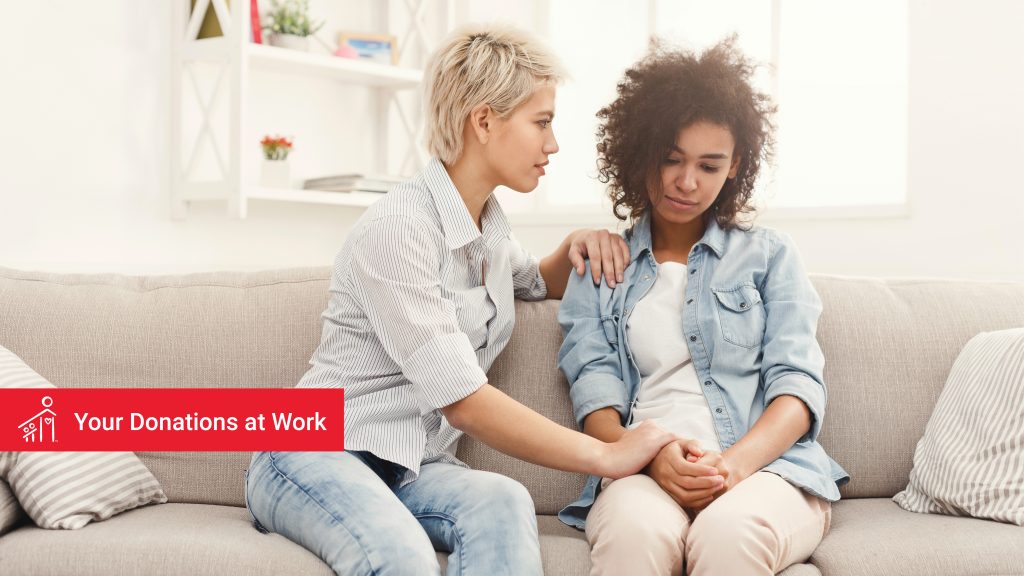
Royal LePage® professionals understand that a house is only a home if the people who live there feel safe. That’s why, more than 25 years ago, we unanimously agreed that helping women and children find safety from intimate partner violence should be where we channeled our big hearts and charitable efforts. In addition to granting millions of dollars to shelters and transition houses in communities across Canada, the Royal LePage® Shelter Foundation™ also funds organizations helping to mitigate and prevent intimate partner violence, as well as those addressing emerging needs in the Violence Against Women sector. This series shares how your donations are being put to work in support of these vital priorities.
How to Help
Supporting someone who is experiencing intimate partner violence (IPV) can be a difficult and sensitive matter, but it’s important to know that there are ways to safely intervene and places you can go for more help.
The following advice comes from the ‘Neighbours, Friends & Families’ campaign, an initiative of the Western Centre for Research & Education on Violence Against Women & Children – a proud funding partner of the Royal LePage® Shelter Foundation™.
Warning signs of IPV
Signs someone is acting abusively:
- Frequently puts their partner down
- Dominates conversations and speaks for their partner
- Constantly checks on their partner, even at work
- Claims to be the victim despite being disrespectful
- Isolates their partner from friends and family
- Treats their partner as property
- Uses firearms to intimidate during arguments
- Threatens to harm pets or animals
Signs someone may be experiencing abuse:
- Apologizes and makes excuses for their partner’s behaviour
- Becomes defensive when others bring up their partner’s behaviour
- Appears nervous around their partner
- Is frequently sick or missing work
- Tries to hide bruises or injuries
- Cancels plans unexpectedly
- Seems withdrawn, lonely, sad or afraid
- Avoids friends and family who were once close
Providing Support
You don’t have to be a professional to offer support. It’s not your job to rescue anyone or make them leave. The most important thing that you can do for a victim/survivor is to help them be less isolated. Small acts over time can have a big impact.
- Talk to the person you are concerned about. Tell them what you see, that you care about them, and that you are worried about their safety. If they have children, let them know that you are concerned about their children’s safety and emotional well-being.
- Never speculate. Stick to what you know for sure.
- If they disclose violence, tell them you believe them and that it is not their fault.
- Encourage them not to confront their partner if they are planning to leave.
- Offer to provide childcare and/or animal care while they seek help.
- Don’t become angry or frustrated with their decisions. Be patient, look for opportunities to have another conversation.
The person you are concerned about may deny the abuse – this is very common. Don’t judge them for not being able to talk about their experiences yet. They may feel afraid, ashamed, or not ready to take the next steps. Be patient, look for opportunities to have another conversation, and assure them that they can talk to you any time.
Safety Planning
Whether someone experiencing abuse chooses to remain in the home or leave, a safety plan is essential. Contact the professionals at your local women’s shelter for support in developing a safety plan.
Finding Help
There are a variety of places where you can reach out for more support. Many services that help survivors will also assist neighbours, friends or family and can provide information about resources close to you. If you are in immediate danger, call 911 for your own safety or that of others.





